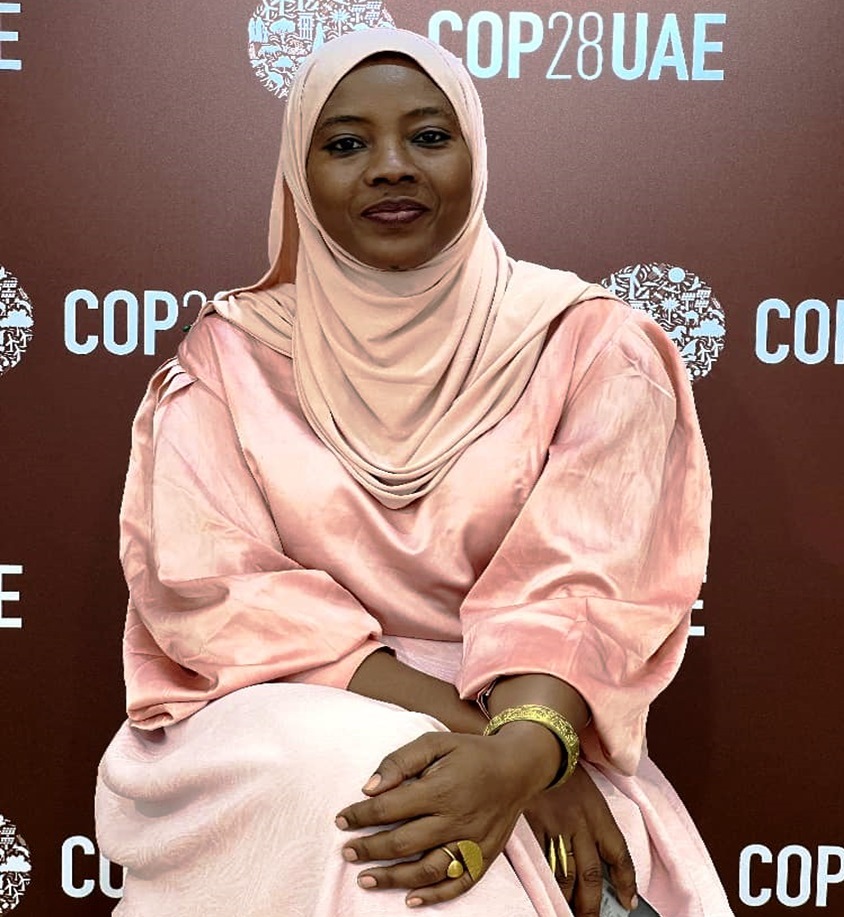By Aminata Kane Balde
In the wake of COP 28, the global discourse on climate action has reached new heights. COP28 has unanimously been recognized as the most pragmatic COP because of the compounded knowledge, experience, expertise and popular demand for action. As a staunch advocate for sustainable change, Craving 4 Development is committed to translating the macro-level discussions, engagements, and decisions of COP 28 into impactful micro-level projects. In this article, we shed light on Craving 4 Development’s unwavering commitment to gender equality in climate action, outlining our key highlights and detailing how we transform international commitments into tangible, community-centric interventions. Craving 4 Development (C4D) will navigate the intricate intersectionality of climate change and gender, fostering real change at grassroots level.
C4D, commits to mainstreaming the conversation around energy transition, Climate finance, adaptation and resilience as well as decarbonization of trade, gender in climate action and Climate justice and leverage it into projects that can not only empower communities but ensure they lead a revolution in our Africa’s use of technology to transform its rich fossil fuels into renewable energies.
In the often-overlooked border towns, where the challenges of remoteness, poverty, and lack of access to information converge, there exists a profound need for gender equality and inclusion, particularly for marginalized groups, like women and girls. This imperative goes beyond mere justice; it extends to climate resilience, adaptation, and the crucial role these communities play in the global shift towards sustainable practices.
These border towns, isolated and underserved, see the compounded marginalization of women due to their gender and geographical circumstances. Acknowledging and addressing this dual marginalization is fundamental to fostering a more inclusive and equitable society.
There is every need to break the barriers to information in a world increasingly defined by connectivity, ensuring equal access to information becomes a beacon of empowerment, transcending age, class, and regional divides. It is the key to unlocking the potential of marginalized communities.
Furthermore, the nexus between gender equality, climate justice, and resilience is undeniable. Adequate financing for climate adaptation is not just an environmental necessity; it is a matter of justice. Ensuring that funding is both actioned and equitable is essential for safeguarding the vulnerable, empowering communities, and fostering adaptation strategies that benefit all.
Unlocking Africa’s young potential for creativity and innovation is paramount, particularly in the transition from fossil fuels to green energy. It’s time to invest in our innovators and technologies, creating a self-sufficient ecosystem that can drive the transition. By investing in an environment that is favorable for innovation, creativity and creation, we can foster generations of change makers and save us collectively from being mere consumers of expensive, transformed products that originated from our lands but that we did not add value to.
The call for a green and ecological approach extends to the heart of trade value chains. Decarbonizing these chains, especially under the African Continental Free Trade Agreement (ACFTA), is an opportunity to position our nations as pioneers in sustainable commerce.  This necessitates a proactive approach to create an enabling environment for long-term international investors to foster the growth of green technologies on our own African terms. Use of Technology will allow African economies to pursue their industrialization attempts while utilizing their natural resources turned green.
This necessitates a proactive approach to create an enabling environment for long-term international investors to foster the growth of green technologies on our own African terms. Use of Technology will allow African economies to pursue their industrialization attempts while utilizing their natural resources turned green.
African youth and women can and should become catalysts for change, representing resilience, inclusivity, and innovation. By addressing gender disparities, ensuring equal access to information, and embracing green practices, we can lead the charge toward a more sustainable future, where economic growth aligns with environmental responsibility.
Craving for Development seeks meaningful partnerships with like-minded entities ranging from governments to the private sector, international NGOs and UN agencies to design and implement the various projects at country level. Collaboration is key in successfully implementing the decisions and agreements at Global and national level.
Contact us at: Tel: +23279053162













